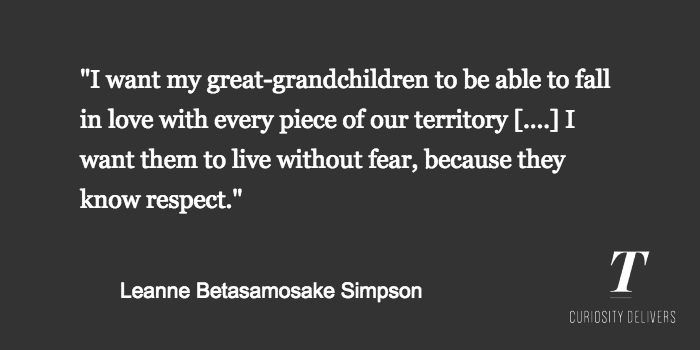Over the past week, McGill has hosted the Indigenous Knowledge Holder Series, held by the McGill Institute for the Study of Canada (MISC) as part of the Canada on the Global Stage Series. Events included a student writing workshop, conferences, and presentations on the resurgence of indigenous communities.
Indigenous History Professor Allan Downey, who was responsible for organizing much of the week’s events, spoke to the importance of learning from indigenous knowledge holders.
“As part of the newly established indigenous studies program, we developed [this] idea of an inaugural […] series, which invites an indigenous knowledge holder to spend a week at McGill and in the community to share their scholarship, work, art, or advocacy,” Downey said. “Indigenous knowledge holders, whether they be wampum belt holders, storytellers, artists, activists, hereditary title holders, or academics, encompass generations of knowledge of indigenous communities, and the series seeks to act as a bridge between that knowledge and the institution, while placing an emphasis on community collaborations and partnerships through things like community workshops and presentations.”
According to Downey, the indigenous knowledge holder who the series was constructed around is Leanne Betasamosake Simpson of the Alderville First Nation.
“Leanne is a prolific Mississauga Anishnabeg Storyteller and activist who has played a significant role in the decolonization and resurgence of indigenous nations through her literary and social activism,” Downey said during his introduction to Simpson’s presentation. “[Simpson has] and really helped us to imagine a reality that we cannot yet face or experience as indigenous peoples,”
Simpson has published two books of short stories and poetry, Islands of Decolonial Love and This Accident of Being Lost, as well as many papers and academic books such as Dancing on our Turtle’s Back. Simpson focused her talk around her writing, particularly spoken word poetry, as well as the issues indigenous people in North America face.
“Indigenous bodies are not just flesh and bones, but they are political orders,” Simpson said. “They house all of the relationships that give us meaning. But indigenous bodies are in the way of natural resources, Indigenous bodies get in the way of settlement, Indigenous political orders get in the way of Canadian sovereignty. Indigenous bodies attached to and in love with Indigenous land is a problem for settler-colonialism.”
Simpson closed her presentation with an anecdote concerning the future of indigenous territory in Canada.
“A couple of years ago, I was one of the people involved in the Idle No More movement, and in my travels around speaking to the issues that we were bringing up at the time, I kept getting asked the question ‘what do you people want anyway?’” Simpson said. “This is my answer to what do you people want anyway: I want my great-grandchildren to be able to fall in love with every piece of our territory [.…] I want them to live without fear, because they know respect. Because they know in their bones what respect feels like [.…] I want them to be valued, heard, and cherished by our communities and by Canada.”
Will Straw, director of the McGill Institute for the Study of Canada, lauded Simpson in his closing remarks of the Thursday keynote.
“In my job, I have to read a lot of books—because I’m a professor—but in the last long, long time, the book I have learned the most from is Dancing on Our Turtle’s Back, which I really think you should all read,” Straw said.









